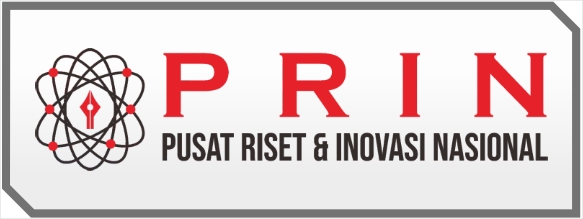Analysis of the Effect of Family Support and Knowledge of Arv Therapy in Patients With HIV on Quality of Life With Adherence to Taking Arv Drugs as an Intervening Factor in the Outpatient Unit of RSUD Kabupaten Tangerang
DOI:
https://doi.org/10.62027/vitamedica.v2i4.181Keywords:
Family Support, ARV Therapy Knowledge, Quality of Life, AdherenceAbstract
Human Immunodeficiency Virus (HIV) remains one of the most serious health challenges in the world. Until now, people with HIV/AIDS have not been cured, but HIV infection and replication can still be prevented with medication. The treatment is known as antiretroviral therapy (ARV). Quality of life in HIV/AIDS patients is very important to note, because this infectious disease is chronic and progressive, so that it has an impact on various aspects of life, both physical, psychological, social, and spiritual. This study aims to identify factors that can affect the quality of life of HIV/AIDS patients through family support, knowledge of ARV therapy, and adherence to taking medication as intervening. Quantitative research method with cross sectional design. The sample technique in this study was purposive sampling. The minimum sample size was determined through Hair's formula and 140 samples were obtained. Data collection techniques with questionnaires and data analysis techniques using bivariate and multivariate analysis. The results showed that there was a significant positive influence between family support and knowledge of ARV therapy on quality of life through adherence to taking ARV drugs as an intervening variable. There is a significant positive influence between family support on quality of life. There is a significant positive influence between ARV therapy knowledge on quality of life. There is a significant positive influence between family support on adherence to taking ARV drugs. There is a significant positive influence between knowledge of ARV therapy on adherence to taking ARV drugs. There is a significant positive influence between adherence to taking ARV drugs on quality of life.
References
Ana Cristina, et al. (2014). Quality of life, clinical characteristics and treatment adherence of people living with HIV/AIDS. National Library of Medicine. https://doi.org/10.1590/0104-1169.3534.2508
Anisa, & Wati. (2019). Pengetahuan dan dukungan keluarga dengan kepatuhan dalam menjalankan pengobatan antiretroviral (ARV) pada pasien HIV/AIDS. Indonesian Journal of Nursing Science and Practice.
Aresta, & Jumaiyah. (2019). Pengetahuan dan dukungan keluarga dengan kepatuhan dalam menjalankan pengobatan antiretroviral (ARV) pada pasien HIV/AIDS. Indonesian Journal of Nursing Science and Practice. https://doi.org/10.24853/ijnsp.v2i2.51-61
Belay, et al. (2021). Health-related quality of life of patients with HIV/AIDS as a tertiary care teaching hospital in Ethiopia. National Library of Medicine. https://doi.org/10.1186/s12955-021-01670-7
Christopher Damulira, et al. (2019). Examining the relationship of social support and family cohesion on ART adherence among HIV-positive adolescents in southern Uganda: Baseline findings. International Interdisciplinary Journal. https://doi.org/10.1080/17450128.2019.1576960
Cohen, S., & Warren, R. (1985). Respite care: Principles, programs and policies. Austin, TX: PRO-ED.
Erica, & Rukmi. (2021). The correlation between the level of knowledge and the adherence on ARV therapy of ODHA in Yogyakarta. Jurnal UGM Keperawatan Klinis dan Komunitas. https://doi.org/10.22146/jkkk.49663
Ferreira, et al. (2020). Knowledge and factors that influence adherence to antiretroviral therapy in people living with HIV/AIDS. National Library of Medicine. https://dx.doi.org/10.5380/ce.v25i0.67768
Honghong Wang, et al. (2009). Consistent ART adherence is associated with improved quality of life, CD4 counts, and reduced hospital costs in Central China. Journal Libert Public. https://doi.org/10.1089/aid.2008.0173
Iryawan, et al. (2022). The impact of peer support on testing, linkage to and engagement in HIV care for people who inject drugs in Indonesia: Qualitative perspectives from a community-led study. Harm Reduction Journal. https://doi.org/10.1186/s12954-022-00595-8
Keller, M. (2016). In the epidemic’s heart. IAVI Report: Newsletter on International AIDS Vaccine Research, 20(4), 12-18.
Khairunnisa, et al. (2017). Gambaran kepatuhan pengobatan ARV pada wanita pekerja seks positif HIV/AIDS di Kabupaten Batang. Jurnal Kesehatan Masyarakat. https://doi.org/10.14710/jkm.v5i4.18376
Krishna, C., & David, R. (2015). Perceived family support and antiretroviral adherence in HIV-positive individuals: Results from a community-based positive living with HIV study. International Journal Sage Pub. https://doi.org/10.1177/0272684X15614220
Kusuma. (2016). Factors influencing quality of life in HIV/AIDS patients taken care of in Cipto Mangunkusumo Hospital. Medical Faculty University Diponegoro Journal.
María José Fuster, & Cenoz, V. (2020). Drug use and antiretroviral therapy (ART) interactions: A qualitative study to explore the knowledge, beliefs, adherence, and quality of life of people living with HIV taking ART and illicit drugs. Biomed Central Journal Pub. https://doi.org/10.1186/s12981-020-00279-y
Millena Azevedo, et al. (2020). Knowledge and factors that influence adherence to antiretroviral therapy in people living with HIV/AIDS. Journal Cogitare Enfermagem. http://dx.doi.org/10.5380/ce.v25i0.67768
Nebiyu Mengistu, & Habtamu Endashaw. (2022). Health-related quality of life and its association with social support among people living with HIV/AIDS receiving antiretroviral therapy in Ethiopia: A systematic review and meta-analysis. Biomed Central Journal Pub. https://doi.org/10.1186/s12955-022-01985-z
Novrianda, et al. (2018). Dukungan keluarga dan kualitas hidup orang dengan HIV/AIDS di Lantera Minangkabau support. Jurnal Ilmu Keperawatan Medial Bedah. https://doi.org/10.32584/jikmb.v1i1.96
Oguntibeju, O. (2012). Quality of life of people living with HIV and AIDS and antiretroviral therapy. Dovepress Journal. http://dx.doi.org/10.2147/HIV.S32321
Oliveira, et al. (2020). Association between social support and adherence to anti-retroviral treatment in people living with HIV. Scielo Brazil Journal. https://doi.org/10.1590/1983-1447.2020.20190290
Proscovia, et al. (2023). The role of family factors in antiretroviral therapy (ART) adherence self-efficacy among HIV-infected adolescents in southern Uganda. BMC Public Health. https://doi.org/10.1186/s12889-020-8361-1
Puspasari, et al. (2018). Overview of antiretroviral therapy adherence and side effects in HIV patients at Dr. Hasan Sadikin Hospital in 2015. Jurnal Sistem Kesehatan. https://doi.org/10.24198/jsk.v3i4.18495
Putra, et al. (2021). Relationship between knowledge level of HIV/AIDS patients with antiretroviral adherence in primary healthcare service in Malang City. Taylor and Francis Journal. https://doi.org/10.1080/15381501.2021.1961651
Safitri, et al. (2019). Studi terapi antiretroviral pada pasien HIV/AIDS di Kota Samarinda. Mulawarman Pharmaceutical Conference. https://doi.org/10.25026/mpc.v9i1.342
Sapeni, et al. (2023). Dukungan keluarga terhadap kualitas hidup ODHA. Jurnal Mitra Kesehatan. https://doi.org/10.47522/jmk.v5i2.190
Sarafino, P. E. (1994). Health psychology (biopsychosocial interactions) (3rd ed.). Printed in the United States of America.
Septiyani, & Ardani. (2021). Hubungan dukungan sosial terhadap kualitas hidup orang dengan HIV/AIDS. Naskah Publikasi, Universitas Aisiyah Yogyakarta.
Sevina, et al. (2019). The correlation between family support and quality of life in mothers with positive HIV in Surabaya. Indian Journal of Public Health Research and Development. https://doi.org/10.5958/0976-5506.2019.02278.2
Siska Mutiara, et al. (2021). Pengaruh terapi ARV untuk meningkatkan kualitas hidup pasien HIV/AIDS: A literature review. Jurnal of Bionursing. https://doi.org/10.20884/1.bion.2021.3.2.101
Tuti Asrianti, et al. (2017). Nola Pender’s health promotion influence the knowledge and adherence of PLWHA ARV drinking. Indonesian Journal of Nursing and Midwifery. http://dx.doi.org/10.21927/jnki.2017.5(1).58-67
World Health Organization. (2023). HIV/AIDS: Key facts. Retrieved October 19, 2023, from https://www.who.int/news-room/fact-sheets/detail/hiv-aids
Wulandari, & Rukmi. (2021). The correlation between the level of knowledge and the adherence on ARV therapy of ODHA in Yogyakarta. Jurnal Keperawatan Klinis dan Komunitas. https://doi.org/10.22146/jkkk.49663
Xu, et al. (2017). Family support, discrimination, and quality of life among ART-treated HIV-infected patients: A two-year study in China. National Library of Medicine. https://doi.org/10.1186/s40249-017-0364-5
Downloads
Published
How to Cite
Issue
Section
License
Copyright (c) 2024 VitaMedica : Jurnal Rumpun Kesehatan Umum

This work is licensed under a Creative Commons Attribution-ShareAlike 4.0 International License.

















